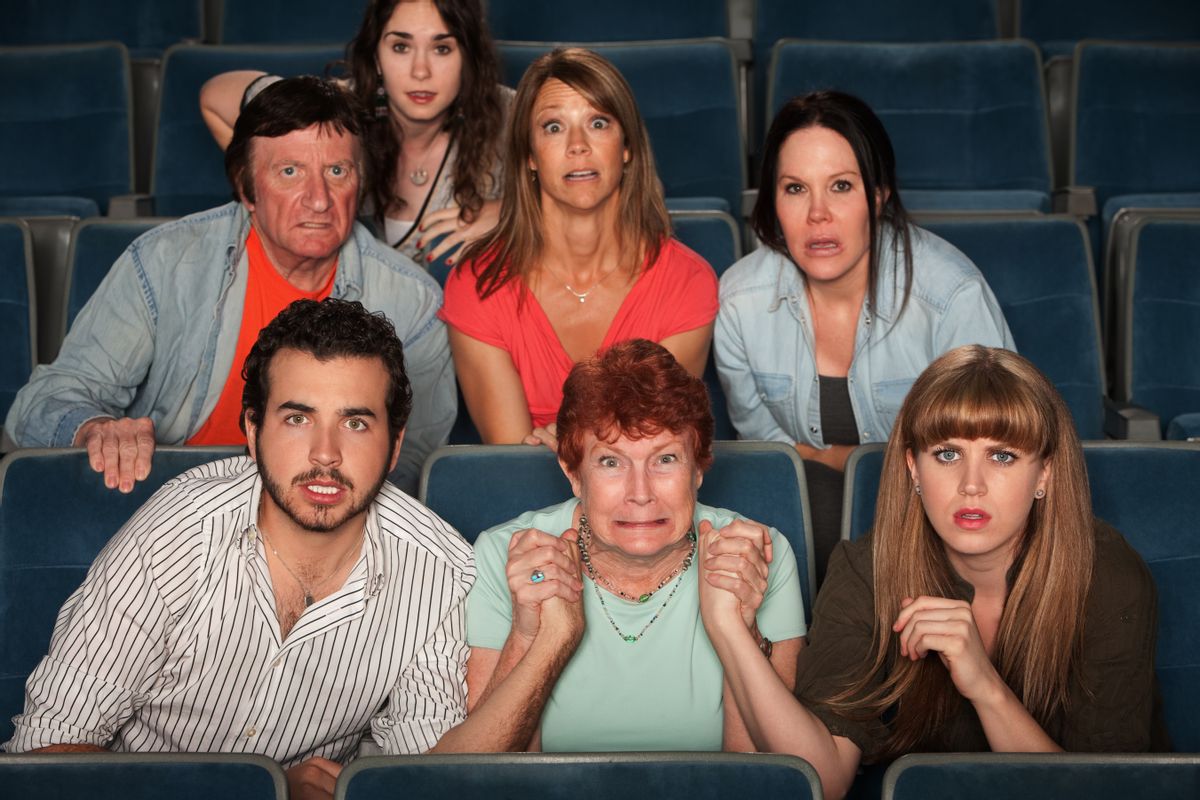I don’t want to make too big a deal of this, and perhaps “racism” is too reductive a term to use for the phenomenon, but there’s definitely something not quite right about the way that certain movies are distributed across the country.
For example, I live in Portland, Maine. Despite what many of you may think of Maine as a whole, Portland is a progressive city. We were the first state to allow gay marriage by referendum, largely because of Portland’s overwhelmingly liberal population. The city regularly elects Green party candidates. Our city has the fourth highest concentration of gay couples per capita in the nation. It’s a funky, liberal socially progressive city.
But it’s also very white.
That last point is important because over the weekend, there was only one movie that opened super wide: Wolverine. It opened in nearly 4,000 theaters, which meant that it played in nearly every city with a multiplex in the country. Meanwhile, there were two movies that expanded nationwide, and one that opened with a major-limited run. The To Do List opened in 600 theaters, The Way Way Back expanded to 886 theaters, and Fruitvale Station expanded into 1064 theaters. Two of those movies came to Portland, and it wasn’t the one that opened in the most number of theaters (I’m not complaining about The Way Way Back finally coming here, mind you: It is easily my favorite movie of the summer, so far). The one that didn’t come featured a black cast, even though — opening in more theaters — Fruitvale Station had a higher per theater average at the box office than both The Way Way Back and The To Do List.
Similarly, last month, Kevin Hart: Let Me Explain opened in 883 theaters over the Fourth of July weekend and put up a surprisingly healthy $10 million opening weekend, about five times more than The Way Way Back opened this weekend, and about six or seven times more than The To Do List opened this weekend. Despite four theaters and 48 screens, Kevin Hart’s movie didn’t open here, either (in fact, it never came to my city). However, Girl Most Likely, the Kristen Wiig movie that no one has seen, and that rolled out in only 351 theaters, has been here for two weeks.
Maybe that makes financial sense. The powers-that-be may know what they’re doing. Maybe distributors look at the demographic of a particular city and simply decide that overwhelmingly white cities will not come out to see Kevin Hart, or even Fruitvale Station. Maybe that’s what the number crunching tells them (although, Think Like a Man and it’s $33 million opening weekend suggests that plenty of white people are willing to see a movie featuring a mostly black cast if the movie is good).
Is it racist, or is that financial savviness, or is it both? Is it fair for distributors to assume, simply because a city is overwhelmingly white, that they won’t turn out to see a movie with an overwhelmingly black cast, even if it’s a movie like Fruitvale that’s getting phenomenal reviews and lots of buzz? I don’t know if it’s racist, but the assumption is certainly an example of something that makes our problems worse, because rather than have a shared sense of cultural preference, we’re being separated based on assumptions.
I’m positive, too, that it’s not just Portland, Maine: Fruitvale opened in only 1,000 theaters, so rather than roll it out nationwide, distributors had to pick and choose which cities to show it in, and my guess is that they chose the cities with the higher population of African Americans (I looked up an noticed it opened in three cities in Little Rock, Arkansas, a conservative city with a high density of African Americans). That bugs me. It bugs me from a race perspective, and it also bugs me as someone that sees nearly every movie that comes to town (except the Kristen Wiig movie): I want to see the best movies, and not just the ones that feature white people. I also really want to see Fruitvale Station, and I think it’s sh*tty that someone decided that the white people of my town wouldn’t turn out to see a great movie about important social issues.




Shares